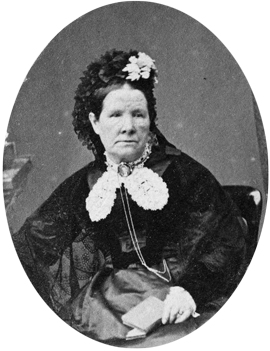
Our History
ONE IDEA - ONE RIPPLE
"Getting the appropriate information into the hands of those who determine health policy and who deliver healthcare is fundamental to improvements in healthcare delivery and health outcomes."
"Getting the appropriate information into the hands of those who determine health policy and who deliver healthcare is fundamental to improvements in healthcare delivery and health outcomes." (Pearson & Jordan, 2010 p. 98)
Founded by Professor Alan Pearson, JBI was established as a research institute in 1996, based at the Royal Adelaide Hospital in South Australia. JBI was established with a grant from Royal Adelaide Hospital Research Foundation, and in acknowledgement of this the Institute was named after Mrs Joanna Briggs, the first Matron of Royal Adelaide Hospital in 1855. As of 2010, JBI became part of the Faculty of Health and Medical Sciences at the University of Adelaide.
For Alan Pearson, the journey towards JBI's establishment started long before the advent of the 'evidence-based' movement. It began while he was still working as a clinician on the wards in the United Kingdom, inspired by philosophies that linked research with practice and drove changes to nursing practice.
The comprehensive vision that Alan Pearson had for JBI's development included the establishment of Collaborating entities globally, training systematic reviewers, design of 'Practice Information Sheets' (now Best Practice Information Sheets) for clinicians and the design and conduct of short courses on evidence-based nursing.
"I envisaged an Institute with Collaborating Centres around the world. It was an opportunity to make an impact on global health outcomes in a meaningful way. International Collaboration would ensure that the process would be context-driven by individuals and groups who understood their very specific healthcare environments and the forces that would work both for and against them."
Since its inception JBI has strived to provide the best available evidence to inform clinical decision-making at the point of care.
References
Pearson A & Jordan Z. Evidence-based healthcare in developing countries,International Journal of Evidence-based Healthcare. 2010;8(2):97-100.
Jordan Z, Donnelly P, Pittman E. A short history of a big idea. Melbourne, The Joanna Briggs Institute, 2006.

The ripple effect
Simone Lee (nee Burghardt) was employed at JBI as the first Communications Officer. As part of her role, she was given the task of designing the logo. She recalls how the logo evolved:
“The logo went through several metamorphoses. Essentially it was meant to reflect the evidence-based movement and its relationship with clinical practice. We brainstormed, and I worked up a few different options. We finally agreed that a pebble dropping into the water and the rippling effect to follow was a most appropriate metaphor for the process of knowledge sharing and practice change.”
The design needed to be familiar enough to be recognisable and unusual enough to be memorable. It also needed to reflect the ideas and activities it was meant to represent. The final logo distinguished itself from the others with its simple but effective message of how a single act or piece of knowledge can be a powerful catalyst for continuous change. Today, the JBI red ‘pebble of knowledge’ and surrounding blue ripples are recognised all over the world as JBI's trademark. The logo is used on all JBI publications, products and promotional material and symbolises the significant effect that dropping a single pebble can have.
Who is Joanna Briggs?
At its inception, JBI was located at the Royal Adelaide Hospital. With a nod to its first host, and given JBI's focus was initially nursing-oriented, a list of matrons of the hospital was compiled. Joanna Briggs was the first matron of Royal Adelaide Hospital (1849-1866), and unlike other potential namesakes she did not have any buildings on the hospital campus named after her. The organisation was initially named the Joanna Briggs Institute for Evidence Based Nursing, however the name was shortened to the Joanna Briggs Institute in 2001 to reflect the increasingly multidisciplinary nature of the work undertaken by the organisation and its Collaborating Entities. To this day JBI staff receive enquiries addressed to Joanna Briggs.
Reference: Jordan Zoe, Donnelly P, Pittman E. A short history of a big idea. Melbourne, The Joanna Briggs Institute, 2006.
